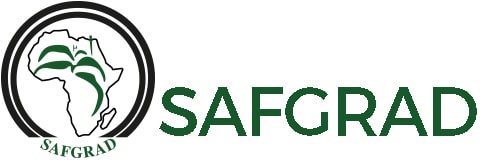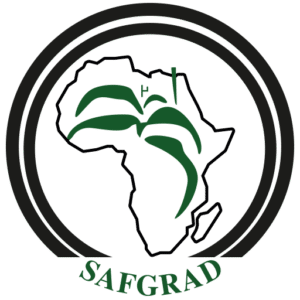a. African Striga Research and Control programme:
Enhancing Food Security through Control of Parasitic Weeds in Africa ‘s Crop Production
The purpose of this initiative is to enhance food security, improve farm income and boost crop production through reduction of yield losses caused by Striga hermonthica; therefore increasing the profitability of crop production and improve the livelihood of farming households. The initiative aims to achieve its purpose through:
- Verification of on-farm striga control technology packages for countries in different sub-regions of Africa ;
- Scaling up and scaling out of packages of proven striga control technologies in areas where the technologies have demonstrated noticeable socio-economic advantages and therefore is acceptable to farmers;
- Production and promotion of seeds of improved striga tolerant resistant crop varieties and legume trap crops;
- C ommunication and outreach activities not only to reach out more beneficiaries of the technologies but also to reach out to policy makers and further improve the impact of the project;
- Building alliances on Striga control and management for harmonization of efforts and achievement of bigger impact; and Capacity building activities.
b. Promotion of Sustainable Agricultural Farming Systems in the Context of Combating Desertification in Africa (TPN6/RAP/UNCCD);
This is an initiative within the framework of the African Regional Action Programme of the United Nations Convention to Combat Desertification (UNCCD). AU/SAFGRAD has been designated as the institutional focal point for coordinating TPN6 activities. The programme has the following expected outcomes:
- enhanced efficiency of national, sub-regional and regional programmes related to sustainable agricultural farming systems through promotion of demand driven strategies for the development and use of innovations, promotion and dissemination of knowledge and know-how in the field of sustainable agricultural farming systems, addressing the concerns of different stakeholders involved in sustainable agricultural farming systems, and information sharing and dissemination of experience and knowledge;
- facilitation of ongoing strategies and initiatives for coherence and common purpose through better coordination of ongoing and newly introduced farming systems initiatives for reduced vulnerability of the poor to various shocks and for a significant improvement in their adaptation to climate change, and encouraging and facilitating regular communication and exchange of information and experiences between and among key stakeholders;
- revitalised agricultural sector based on good local governance aimed at benefiting local people through improvement of local governance by enhancing documentation and dissemination of successful approaches, building capacity of local institutions, scaling up successful and innovative approaches at national, sub-regional and regional levels and forging critical partnerships.
c. Promotion and Scaling up and Scaling out of Best Crop, Water and Nutrient Management Strategies in Africa ;
This initiative is a collaborative undertaking in the framework of Challenge Programme on Water and Food (CPW&F): Enhancing Rainwater and Nutrient use Efficiency for improved crop productivity, farm incomes and rural livelihood in the Volta Basin .
AU/SAFGRAD collaborates with international (e.g., ICRISAT, CIAT) and national agricultural research institutions in Burkina Faso (INERA) and Ghana (SARI).
The objectives of this initiative are to promote and scale up and scaling out best bet crop, water and nutrient management strategies in the Volta Basin through more efficient information and methodology dissemination mechanism.
d. Linking Knowledge with Action for a Maximum Development Impact: Enhancing Africa’s Capacity for Sustainable Agricultural Research for Development in Semi-Arid Areas;
The purpose of this capacity enhancement initiative is to develop and reinforce the capabilities of African institutions and their human resources in priority areas as will be defined through a thorough situation analysis and consultative processes. It is intended to accomplish the enhancement of the capacity of institutional and human factors to solve the immediate and pressing developmental problems but also and most importantly aspire for higher level goals. Hence its goal is to enhance African capacity to be driven by a virtuous cycle of knowledge generation, accumulation, utilisation and sharing for the betterment of its people working and living in the semi-arid areas and beyond. By successfully implementing this programme AU/SAFGRAD aspires to:
- identify, prioritise, investigate and resolve on a continuous basis the crucial agricultural/rural developmental problems faced by Africans living in semi-arid regions of the continent;
- develop a number of relevant and quality training curricula that churn tens of thousands of African cadre of researchers, trainers, and development practitioners – fruitfully integrated into becoming change agents;
- ensure that these cadre of change agents, by working together in a multitude of teams, come up with numerous researchable developmental problems and subsequently act upon them in a manner that solve real problems;
- see continuous and unhampered flows and exchange of ideas, expertise, experiences and good practices among fellow Africans, and these put into mutually beneficial purposes, hence contributing towards integration of Africans; and ultimately
- see knowledge fundamentally transforming Africa ‘s agriculture and rural development.
e. Improving Farm Productivity and Rural Incomes through Biological Control of Insects (on Mango)
The purpose of this new initiative is to reduce rural poverty and strengthen food security through implementing a biological control of mango insects. The project is started in Burkina Faso with financial support from the African Development Bank, but its effectiveness will depend on the extent to which similar efforts are exerted at a regional level. The role of SAFGRAD within this initiative is
- to bring together and facilitate exchange of regional expertise and other resources for a successful implementation of the project in Burkina Faso , and
- To facilitate and coordinate regional efforts aimed at scaling out the initiative among neighbouring countries.



